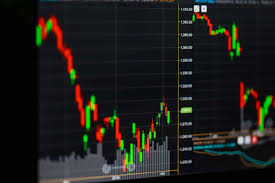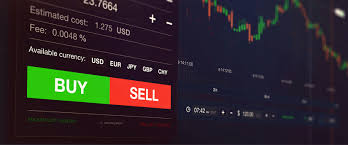
How to Open a Forex Trading Account: A Comprehensive Guide
Opening a forex trading account is the first step toward entering the exciting world of currency trading. It involves several steps including choosing a broker, understanding account types, and completing the necessary documentation. In order to make an informed decision, it’s vital to consider various factors such as reliability, security, and trading platforms. For recommendations on trading platforms, check forex trading account opening Thai Trading Platforms.
Understanding Forex Trading Accounts
Forex trading accounts are specialized accounts that allow traders to access the foreign exchange market. Unlike regular bank accounts, these accounts are meant for trading currencies and typically come with various features tailored for traders. Understanding the different types of accounts available helps you choose the one that fits your trading style and strategy.
Types of Forex Trading Accounts
Forex brokers offer several types of accounts that can be classified based on different criteria. Here are the most common types:
- Standard Accounts: These are suitable for experienced traders and usually require a higher minimum deposit. They offer full access to trading features.
- Mini Accounts: Ideal for beginner traders, these accounts require a lower minimum deposit and allow trading in smaller increments.
- Micro Accounts: Similar to mini accounts with even smaller trade sizes, these accounts enable traders to open positions with minimal risk.
- Pro Accounts: Designed for professional traders, pro accounts often come with the tightest spreads and advanced trading features.

Choosing a Forex Broker
The broker you choose is crucial to your trading success. Some factors to consider when selecting a broker include:
- Regulation: Ensure that the broker is regulated by a financial authority in your location. This provides an additional layer of security for your funds.
- Trading Platforms: Look for brokers that offer reliable and user-friendly trading platforms. Some popular platforms include MetaTrader 4, MetaTrader 5, and proprietary platforms that may offer unique features.
- Spreads and Commissions: Compare costs associated with various brokers. These can significantly affect your profitability, especially for high-frequency trading.
- Customer Support: Good customer service is vital, especially for new traders. Ensure that the broker offers timely and helpful support.
- Education and Resources: A good broker should offer educational materials, tools for analysis, and resources for improvement.
Steps to Open a Forex Trading Account
Opening a forex trading account usually involves several straightforward steps:
- Research and Choose a Broker: Evaluate various brokers based on the factors mentioned above.
- Visit the Broker’s Website: Go to the official website of your chosen broker.
- Fill Out the Application: Complete the online application form. You will be asked to provide personal information such as your name, address, and phone number.
- Submit Identification: Most brokers require identity verification. This could involve submitting a government-issued ID and proof of address.
- Fund Your Account: After your account is approved, you can transfer funds to start trading. Most brokers offer various funding methods including bank transfers, credit cards, and e-wallets.
- Start Trading: Once your account is funded, you can download the trading platform, familiarize yourself with its features, and begin trading.
Common Challenges When Opening a Forex Account

While opening a forex account is generally a simple process, several challenges may arise. Here are some common pitfalls and how to navigate them:
- Verification Delays: Ensure that you provide all requested documentation correctly to avoid delays in the approval process.
- Choosing the Wrong Account Type: Take your time to understand each account type and choose one that best suits your trading strategy.
- Not Understanding the Broker’s Fees: Carefully read the fee structure provided by your broker to avoid surprises in your trading costs.
Best Practices for Traders
Once you have opened your forex trading account, it’s essential to adopt good trading practices:
- Develop a Trading Plan: Before placing trades, outline your goals, strategies, and risk management techniques.
- Practice with a Demo Account: Many brokers offer demo accounts where you can practice trading strategies risk-free before committing real money.
- Stay Educated: Continuously seek knowledge about market trends, trading strategies, and economic indicators that can affect currency prices.
Conclusion
Opening a forex trading account is a foundational step in your trading journey. By carefully selecting a broker, understanding the types of accounts available, and following best practices, you can set yourself up for success in the forex market. Remember, achieving consistent profitability takes time, practice, and a commitment to ongoing education and strategy refinement.






